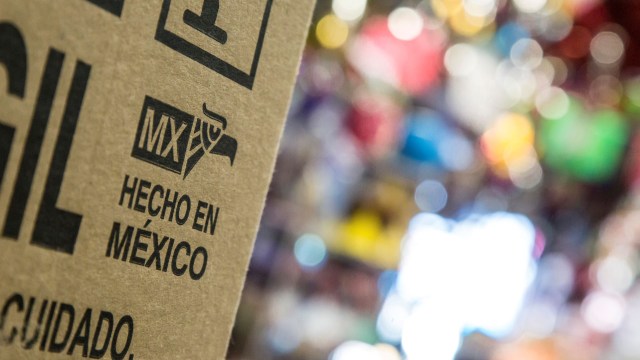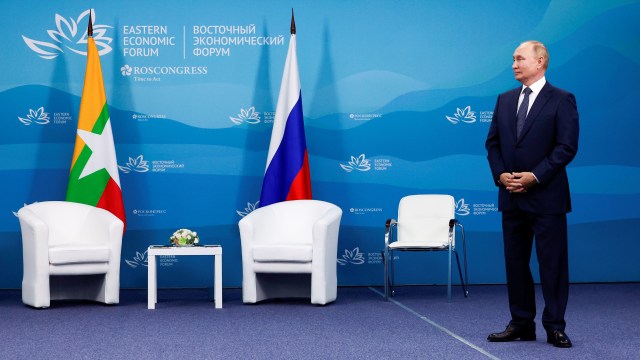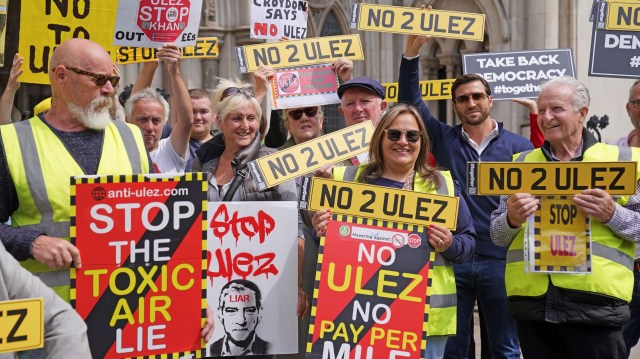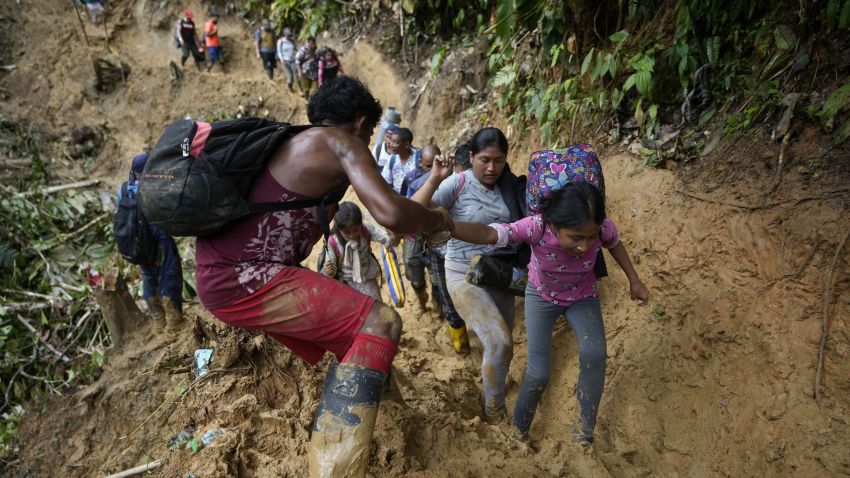Today at WPR, we’re covering a tipping point in the global economy and Russia’s fading influence in Southeast Asia.
But first, here’s our take on today’s top story:
United States: The Biden administration said it would offer temporary protected status, or TPS, to more than 470,000 Venezuelan migrants who arrived in the United States before July 31, allowing them to live and work legally in the country for 18 months. (New York Times)
Our Take: The move comes at a time when an influx of migrants in several Democrat-run cities has strained shelter capacity and social services, leading what is normally a highly politicized partisan issue to also become a highly politicized intraparty issue.
As a result, and as is often the case with U.S. migrant policy, the Biden administration’s response prioritizes expediency over developing a comprehensive approach to addressing the issue. The granting of TPS to Venezuelan migrants already in the U.S. addresses the concerns of local Democratic officials, by allowing Venezuelans already in their jurisdictions to begin fending more for themselves. But the arbitrary cutoff date of July 31 for TPS eligibility highlights the ad hoc—some might say cynical—logic of the decision, which will nevertheless only embolden Republican critics of Biden’s border policies, who argue that the use of TPS incentivizes illegal border crossings.
Get the Daily Review sent straight to your inbox every weekday.
While this specific decision has mostly to do with U.S. domestic politics, it comes against the backdrop of shifting patterns of migration in Central and South America to which U.S. migrant policy has largely failed to adapt. The number of Venezuelan migrants, in particular, reaching the U.S. border with Mexico has risen dramatically in recent years, but those arriving from other countries, like Cuba, Colombia and Nicaragua, have also increased significantly.
That has led the Biden administration to maintain some of the most-criticized policies of former President Donald Trump, including expelling many asylum-seekers back to Mexico if they do not enter the U.S. through legal pathways. In an effort to ease the crisis at the border, the administration has also established visa-processing centers in Colombia and Costa Rica, with another planned in Guatemala, part of a broader trend among Global North countries to outsource the screening and resettlement of migrants to third countries.
But that trend comes with many problems of its own, and in any case the number of migrants seeking to enter the U.S. far outstrips the number of available appointments in the newly rolled-out programs. That means that immigration will continue to be an inflammatory issue in U.S. politics in the runup to next year’s presidential election, even as a comprehensive and effective approach to addressing it remains unlikely.


Friend-Shoring Is Already Reshaping Global Trade
Earlier this year, the global economy experienced an important milestone that went largely unnoticed. But in the future, scholars may look back on it as a marker of the beginning of a new era, with not only economic but also strategic and geopolitical significance: For the first four months of this year, Mexico surpassed China as the top trade partner of the United States.
As columnist Frida Ghitis writes, the era of fast-expanding global trade has been losing impetus and is now entering a new phase, in which near-shoring and friend-shoring are more than fashionable labels. Instead, they are trends that are reshaping the way countries deal with each other.
Russia’s Influence in Southeast Asia Is Fading
In recent years, as Russia under President Vladimir Putin has increasingly tried to project power around the globe, one of the areas it has focused on has been Southeast Asia. While Moscow’s attempts at expanding its influence there attracted less attention than its efforts in Africa or Eastern Europe, Russia had quietly boosted its military ties and diplomatic engagement across the region.

Now, however, Joshua Kurlantzick writes that Russia’s influence in Southeast Asia seems to be dramatically fading, largely cutting Moscow out of a critical region in global politics.

We want to hear your take on the issues we cover. We’ll select one person from those who answer the question below to receive a free month extension of their WPR subscription.
This week’s question: On Tuesday, Britain passed its Online Safety Bill, which includes age-verification requirements for pornography sites and rules to reduce hate speech, harassment, online fraud and other illicit material. But critics have argued that the bill does not do enough to protect users’ right to free expression.
- Limiting as much as possible the harms that such platforms might cause.
- Protecting as much as possible free speech rights.

At a ceremony yesterday establishing diplomatic ties with Haiti, Kenyan President William Ruto committed his country to leading a multinational force in the Caribbean nation to combat gang warfare.
Since 2021, Haiti has been gripped by a security and humanitarian crisis, as gangs have taken control of around 90 percent of the capital city. And just yesterday, the country’s most powerful gang leader, Jimmy “Barbecue” Cherizier, called for an armed overthrow of the government of Prime Minister Ariel Henry.
As part of multilateral efforts to address the crisis, Kenya has volunteered to lead a multinational police force to Haiti. As Alessandro Ford wrote last month, however, the crisis goes far beyond a policing challenge. It is an urban warfare nightmare.

Kenya’s Police Are No Match for Haiti’s Urban Warfare Nightmare
Aug. 11, 2023 | Haiti’s ongoing security crisis runs deeper than just gang violence. It is an urban warfare nightmare. Read more.
British PM Rishi Sunak announced Wednesday that the U.K. government would delay by five years a ban on new gas and diesel cars that was originally scheduled to take effect in 2030, as well as weakening other planned policies designed to address climate change.
The announcement comes as governments across Europe attempt to implement wide-ranging policies needed to combat climate change. Though opinion polls indicate those policies enjoy broad support, as Alexander Clarkson wrote in July, there is also growing disquiet among voters as the tradeoffs needed to make green policies work become clearer.
The Green Transition Is Becoming an Electoral Minefield
July 26, 2023 | Right-wing politicians in Europe and the US have made policies designed to mitigate climate change part of a larger culture war. Read more.

That’s all for today’s Daily Review. Coming up, we’re covering why pre-invasion assessments about the war in Ukraine were so wrong and the global impact of the drought in Panama.
Have a great day,
Jakob Cansler
More From WPR
- Alexander Clarkson on social democracy in Europe.
- Matthew Blackman on South Africa’s opposition.
- Mary Gallagher on “Common Prosperity” in China.
- Emil Avdaliani on Russia-Armenia relations.

